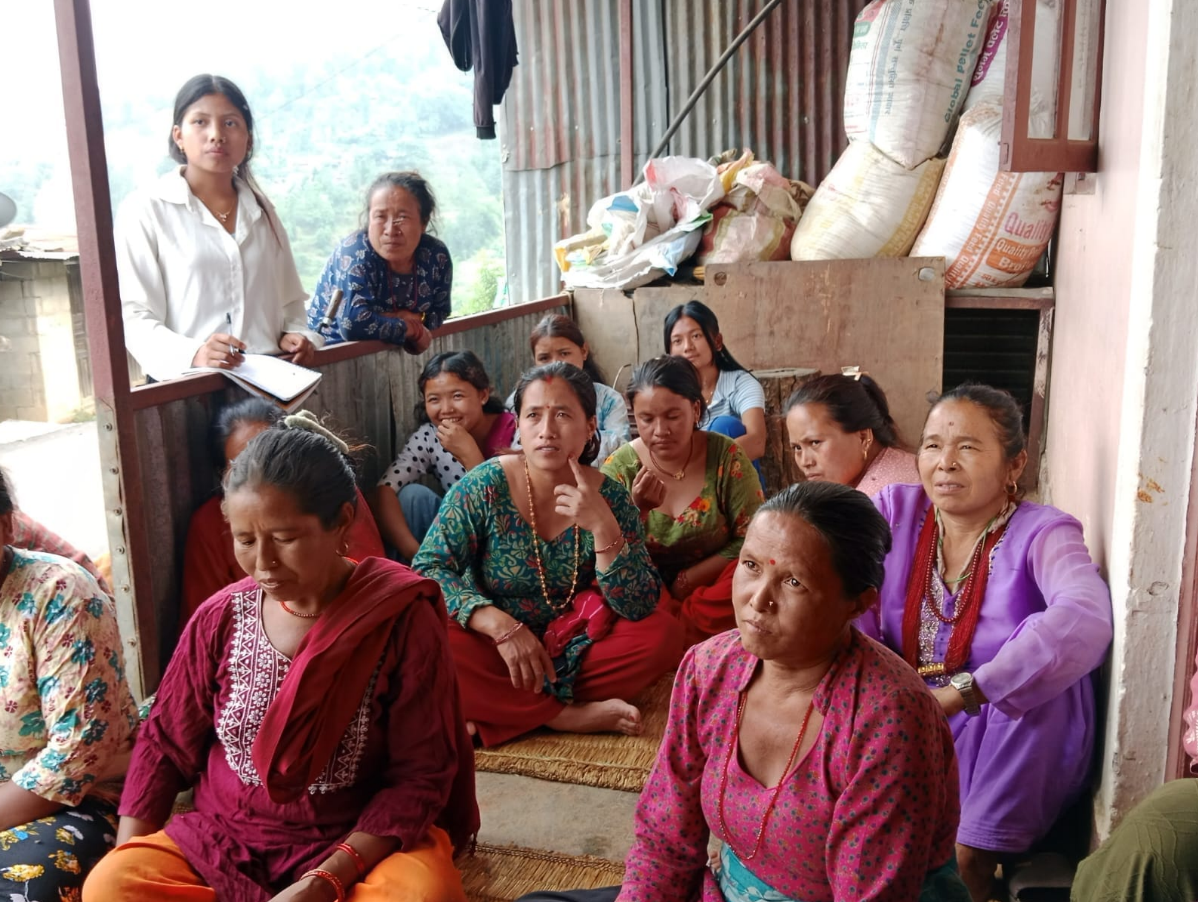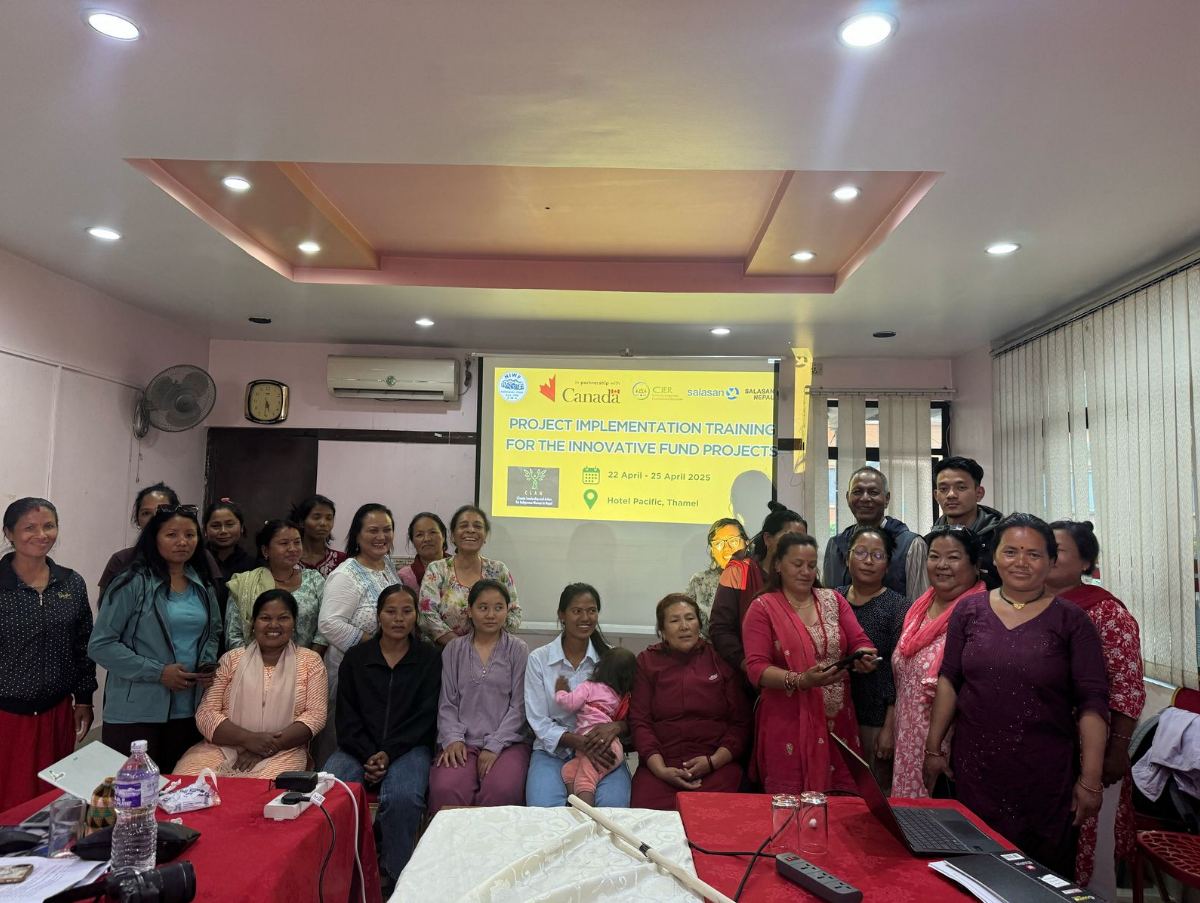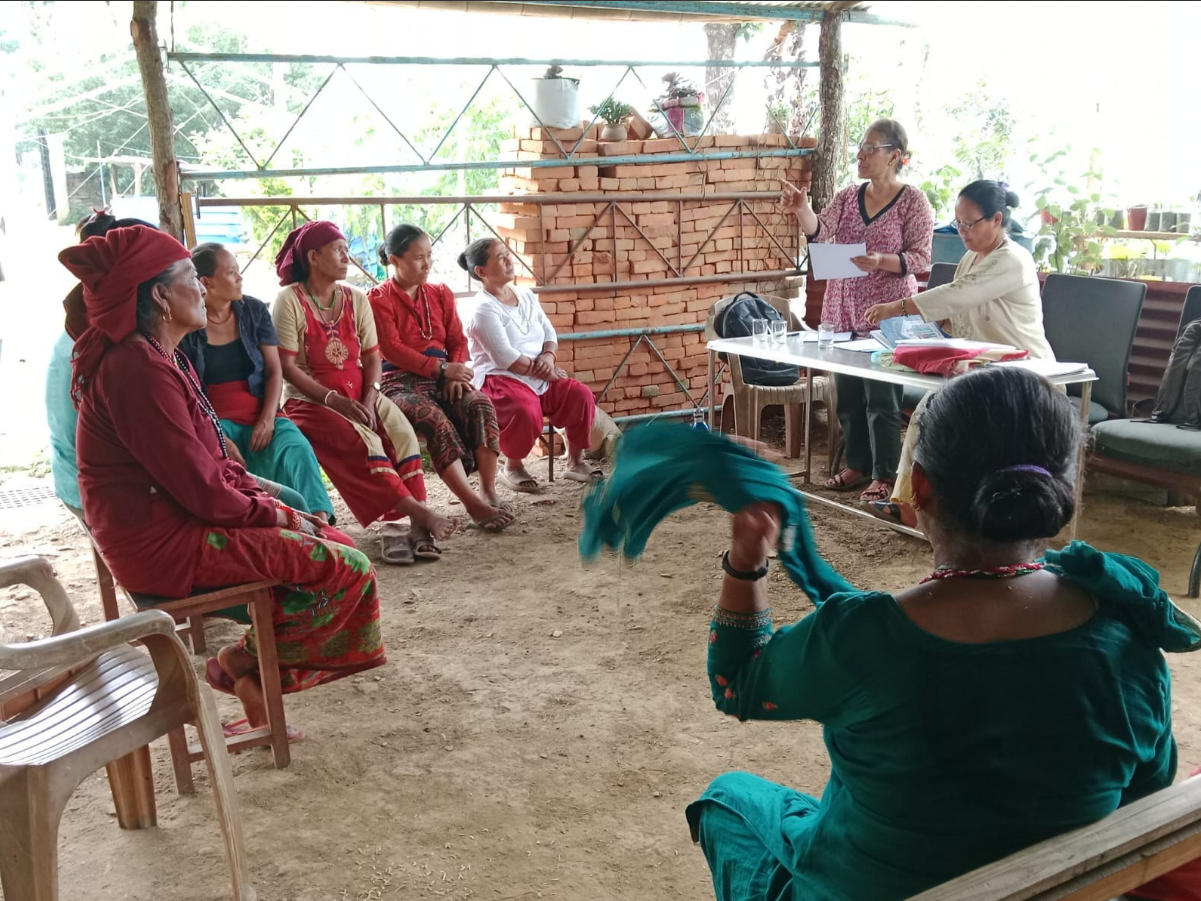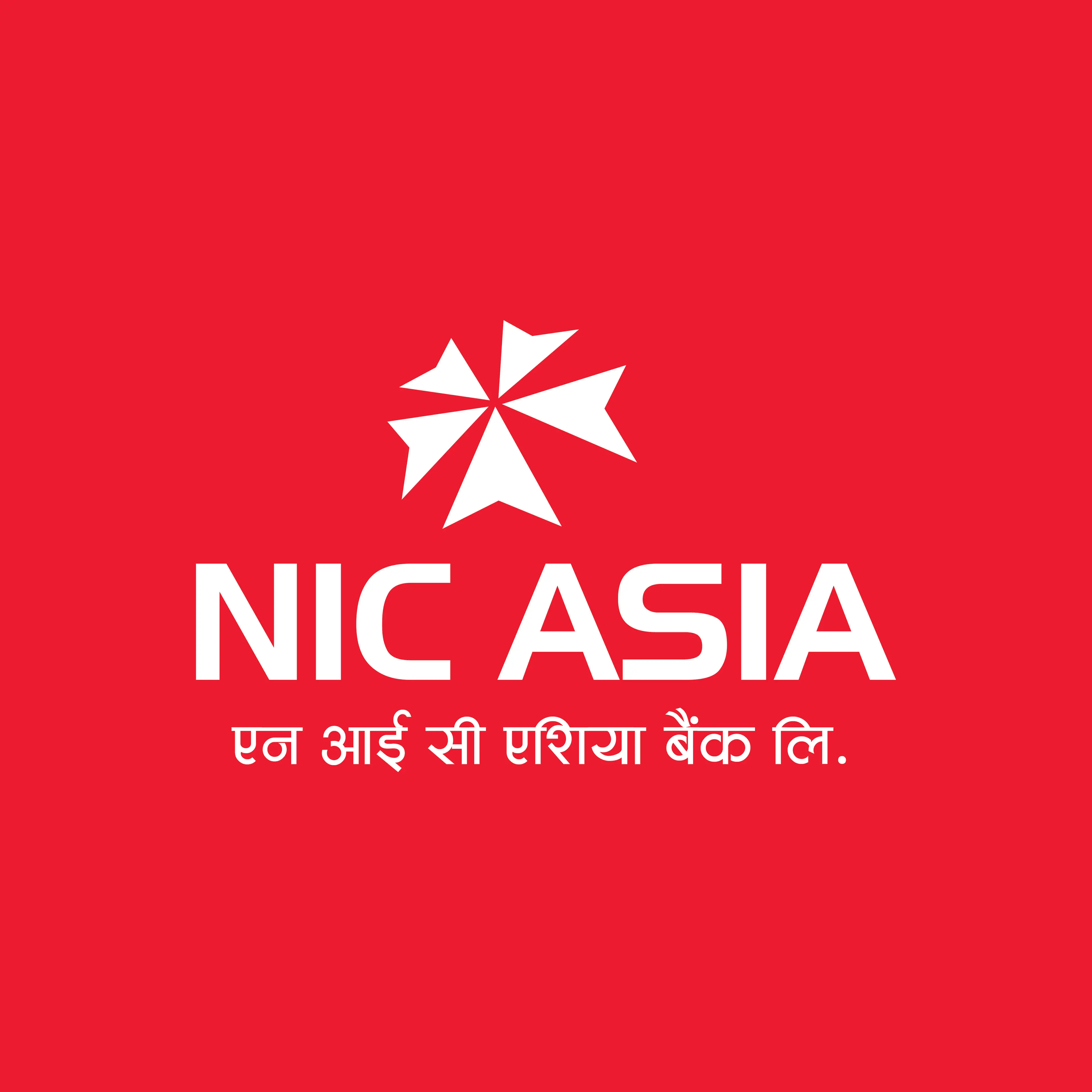
From April 22 to 25, 2025, SALASAN Nepal, in collaboration with the National Indigenous Women Forum (NIWF), successfully conducted a four-day Project Implementation Guideline Training in Kathmandu for the recipients of the Innovative Climate Initiative Fund (ICIF). The training brought together 50 Indigenous Women leaders and representatives from Bhumlu, Indrawati, Chaurideurali, and Balefi Rural Municipalities to build their capacity to implement and address climate related issues faced by the indigenous women and other community members in the CLAN project area of 4 Rural Municipalities. The Climate Leadership and Action for Indigenous Women in Nepal is designed to enhance the capacity of Indigenous Women’s groups by equipping them with essential knowledge and practical tools for effective project planning, implementation, monitoring, and reporting—ultimately empowering them to lead sustainable, community-driven climate and development initiatives.
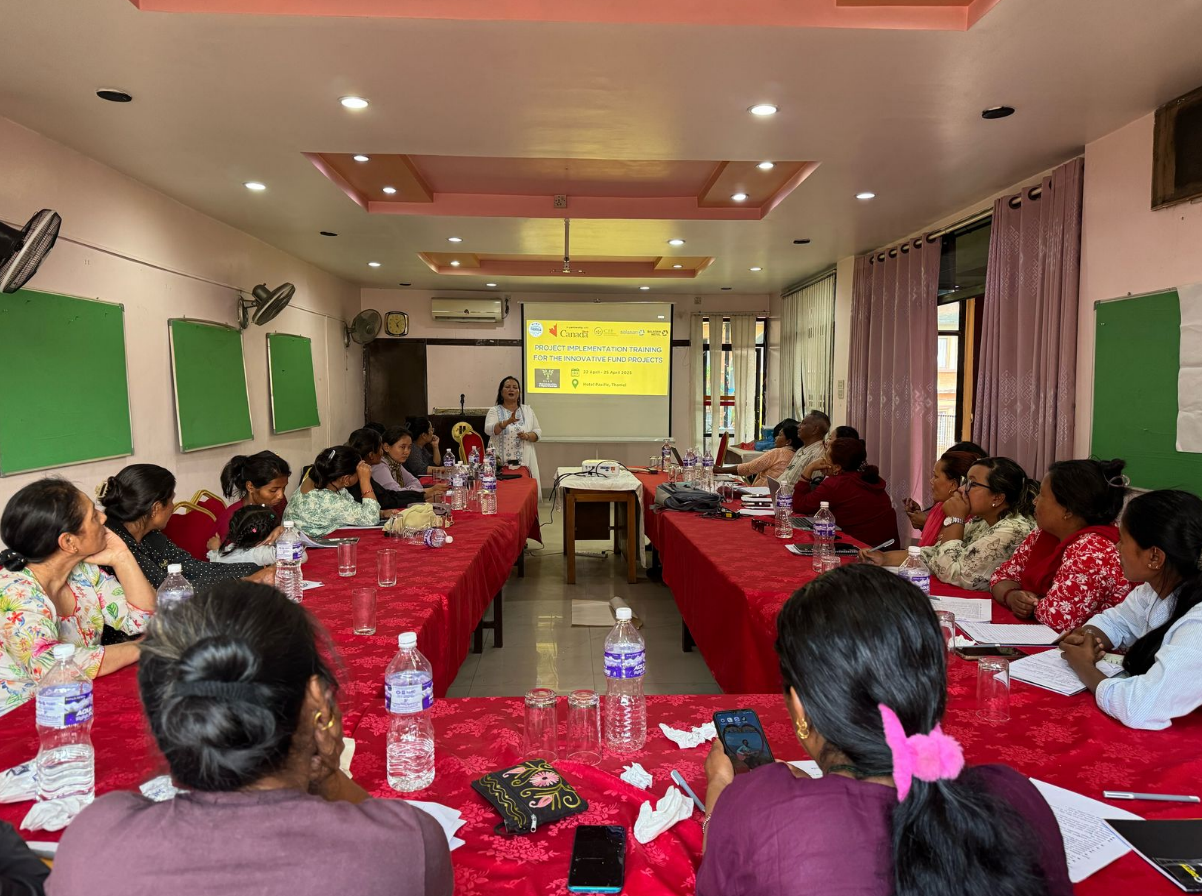
Divided into two focused phases, the first two days covered the planning and execution of construction-based climate initiatives, while the latter two days centered on plantation-related projects. A key highlight of the training was the coming up with detailed work plans by all 25 climate groups demonstrating strong community ownership, inclusive planning, and a results-oriented approach. These presentations showcased their commitment to transparency, accountability, and local engagement in driving climate resilience. In addition to technical skills, the training also focused on building participants’ capacity in financial management. Participants learned practical approaches to managing project funds transparently and efficiently, including the importance of collecting at least three quotations before purchasing materials—ensuring fair pricing and accountability. They were also introduced to basic auditing practices, helping them understand how to maintain proper financial records, prepare documentation for audits, and uphold financial integrity throughout the project cycle. These skills are essential for fostering transparency and trust within their communities and with funding partners. By strengthening the leadership and technical skills of Indigenous women-led groups, the training has laid a strong foundation for impactful climate action at the grassroots level—led by the very communities most affected by climate change.
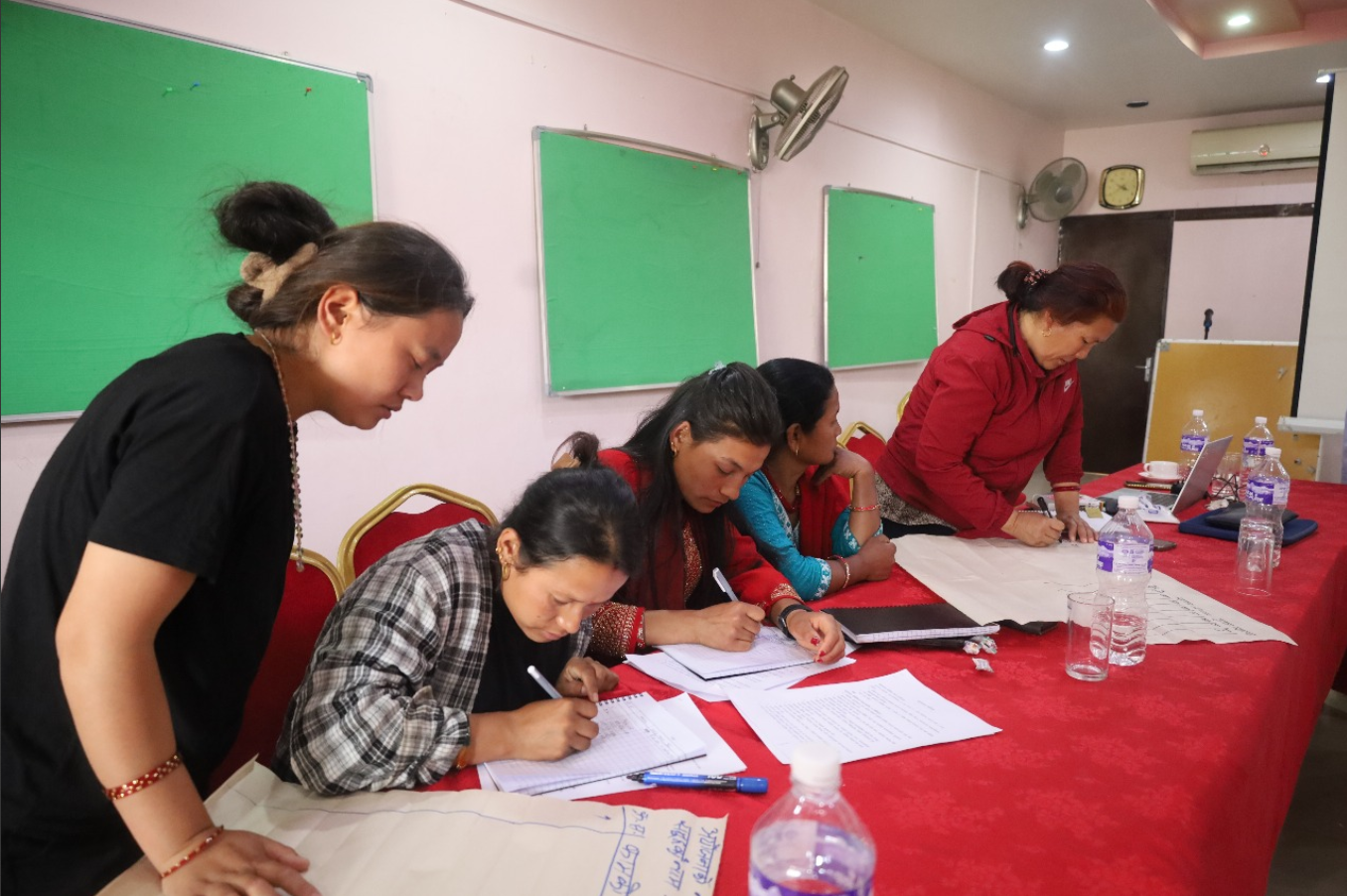

Climate Leadership and Action for Indigenous Women in Nepal is a project implemented by Salasan Consulting Inc. in partnership with the Centre for Indigenous Environmental Resources (CIER), through Salasan Nepal in collaboration with the National Indigenous Women Forum (NIWF). The project aims to build the capacity of 50 Indigenous women leaders from 25 Indigenous climate groups, reaching a total of 750 women across four rural municipalities in the Kavrepalanchok and Sindhupalchok districts. To date, the project has strengthened the knowledge and skills of Indigenous women in the target areas, particularly around climate issues affecting their communities. As the project moves through its implementation phase, the 25 Indigenous climate groups have developed 25 climate adaptation project. This initiative is funded by the Government of Canada to address climate-related challenges in the midhill areas of Nepal.
Salasan Nepal conducted a field visit to Kavrepalanchok and Sindhupalchok districts from June 11 to 13, 2025, and signed agreements with 25 CLAN groups.
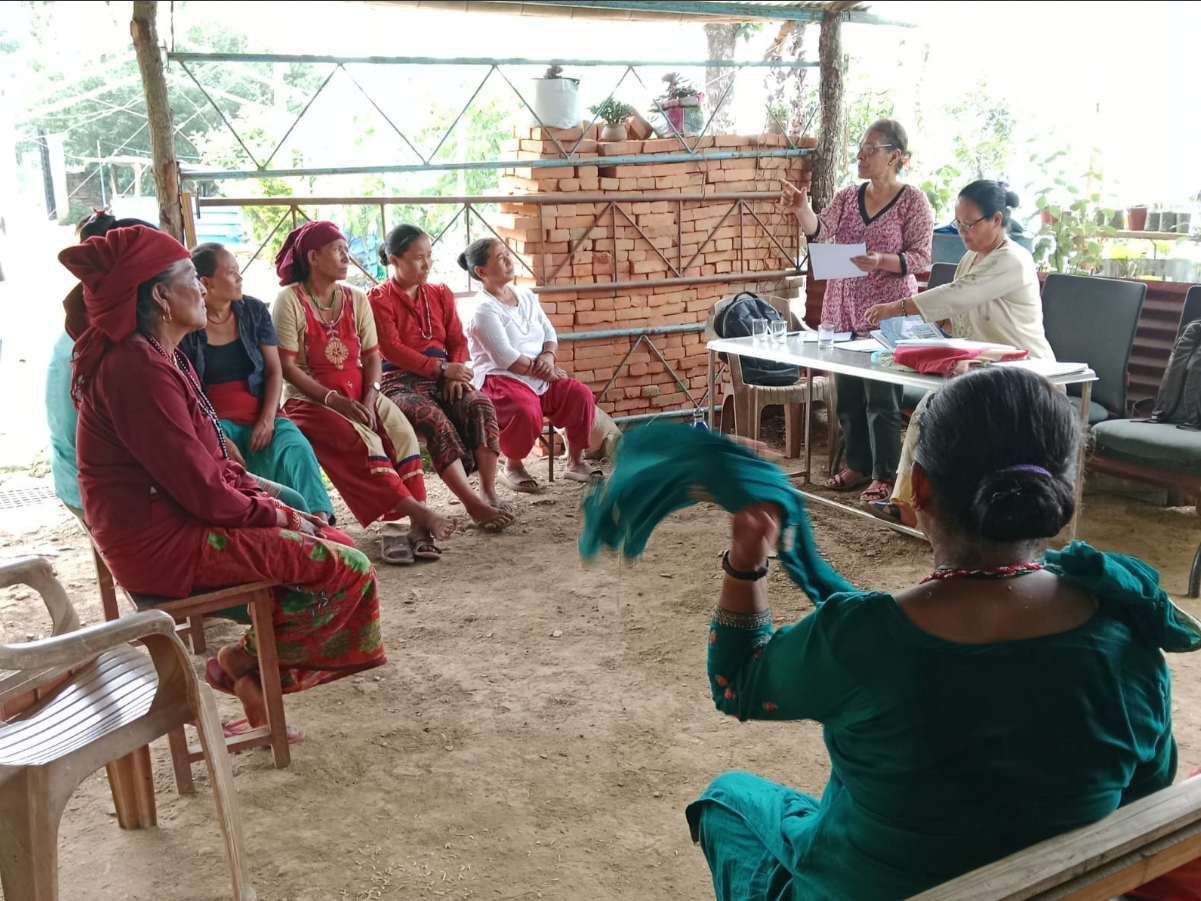
The Innovative Project Grant Fund has been
specifically designed by the 25 climate groups to address the emerging
climate-related issues affecting their communities and daily lives. Each
proposal under the fund targets a range of pressing environmental challenges,
including:
- Landslide
and flood management
- Conservation
and management of water resources
- Livestock
health management, and
- Plantation
of fruit and multipurpose tree species on abandoned farmlands
To irrigate agriculture land 4 climate groups have adopted the construction of rainwater harvesting ponds and tanks. In addition, the project promotes the use of Indigenous skills, knowledge, and practices to conserve and revitalize traditional ecological wisdom in the project areas. This approach not only enhances climate adaptation but also preserves cultural heritage.
The locally developed projects are expected to help address the climate challenges identified by each group. By implementing their own solutions, communities are empowered to benefit directly from the outcomes. Climate change has already significantly affected the project area, particularly through declining agricultural productivity. This has resulted in longer periods of food insecurity (hunger months) and has forced many to migrate both internally and abroad in search of livelihoods.
Male migration, in particular, has led to increased
workloads for women, reducing their participation in decision-making roles
within community groups and project committees. While the absence of men has,
in some cases, increased women's responsibilities and mobility leading to
greater empowerment it has also made them more vulnerable, especially during
overnight stays and solo travel.
To combat these challenges, the project promotes:
- Increased
agricultural production through promotion of organic liquid insectisite
using locally available herbs.
- The
preservation of traditional knowledge and skills through use of locally
available resources and plantation of local speciesism
- Improved
animal health services
- The
adoption of diversified farming practices on previously abandoned
or underused lands
These measures aim to strengthen community resilience, especially in the face of ongoing climate impacts and widespread migration.
